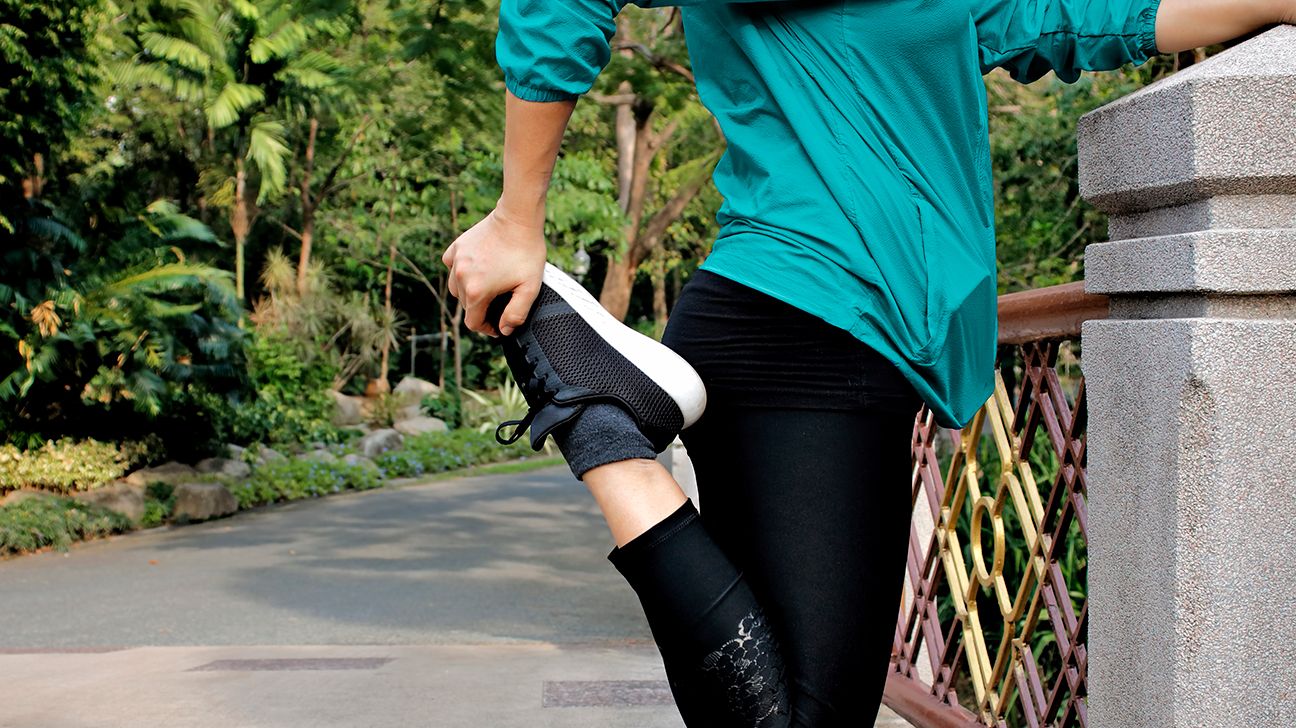Joint pain is very common during menopause and may be related to lower levels of estrogen. Exercising frequently, eating anti-inflammatory foods, and other actions may help reduce the pain.

If you experience hot flashes, shifts in mood, and joint pain, you’re not alone. These are some of the most common symptoms for people going through menopause.
It’s estimated that more than
Menopausal-related joint pain can be caused by changes in hormonal levels, but other factors may also play a role. There are a variety of home remedies that may help reduce joint pain, and OB-GYN and primary care doctors can also help you decide if you’re a good candidate for hormone replacement therapy (HRT) or other medications.
Learn more about menopause.
Language matters
You’ll notice we use the binary term “women” in this article. While we realize this term may not match your gender experience, this is the term used by the researchers whose data was cited. We try to be as specific as possible when reporting on research participants and clinical findings.
Unfortunately, the studies and surveys referenced in this article didn’t report data on, or may not have included, participants who were transgender, nonbinary, gender nonconforming, genderqueer, agender, or genderless.
According to 2010 research, it’s believed that a
Estrogen helps to protect joints and reduce inflammation. It also affects the function of muscles, tendons, and ligaments. Having the right balance of estrogen is necessary for ideal joint performance.
The development or progression of arthritis may be another reason for chronic joint pain during menopause. The risk of osteoporosis and osteoarthritis increases during menopause. This increased risk is also likely related to hormone changes.
Medical Perspective“Weight gain is another common factor during menopause. Extra weight places more pressure on joints — especially those that bear the body’s weight, such as the hips, knees, and lower back — thereby increasing the likelihood of pain and joint strain.”
— Stacy A. Henigsman, DO, MSCP
Learn more about menopause and weight gain.
Quotes represent the opinions of our medical experts. All content is strictly informational and should not be considered medical advice.
Learn more about the possible connections between arthritis and menopause.
You may experience:
- decreased range of motion
- cracking or popping sounds when joints move
- stiffness and swelling in the joints
- related muscle and back pain
- shooting pains
According to the 2010 research, one of the
Other things that may help your pain include:
- eating more anti-inflammatory foods
- de-stressing through activities such as:
- quitting smoking if you do smoke
- trying acupuncture
- taking over-the-counter (OTC) medications
- applying ice or heat
- using hormone replacement therapy (HRT)
- taking vitamin and mineral supplements that promote joint health
Treating other menopause-related symptoms and signs, such as fatigue, insomnia, and depression, may help as well.
Research indicates that women are particularly likely to develop musculoskeletal pain during perimenopause, but the odds of moderate to severe musculoskeletal pain increase with age through postmenopause.
Your joint pain may be chronic, especially if you develop arthritis. HRT
Finding support if you have joint pain at menopause
If you’re experiencing joint pain during menopause, you may benefit from talking with any of the following:
- OB-GYN
- primary care doctor
- pain management specialist
- acupuncturist
- physical therapist or personal trainer
- therapist
- massage therapist
- chiropractor
If you experience chronic joint pain, you may also wish to join a chronic pain support group.
Will joint pain from menopause go away?
The joint pain you experience may not go away even after menopause. You may experience it for the rest of your life, but there are ways to manage the discomfort.
Where is joint pain most common for those with rheumatoid arthritis?
If you have rheumatoid arthritis, you may feel pain in the wrist, fingers, and toes, but you can also experience pain in other areas, including the knees, elbows, ankles, and neck.
What supplements help menopausal joint pain?
Some supplements that people report to improve joint pain include fish oil,
You’re not alone if you experience stiffness, swelling, or shooting joint pain during menopause. Lower estrogen levels may be partially responsible for the discomfort, but a combination of other factors, including arthritis, may also contribute.
If you experience joint pain during menopause, it can help to get regular exercise and eat anti-inflammatory foods. If you experience chronic pain, you may want to talk with a doctor or other healthcare professional about medication options, including HRT.




